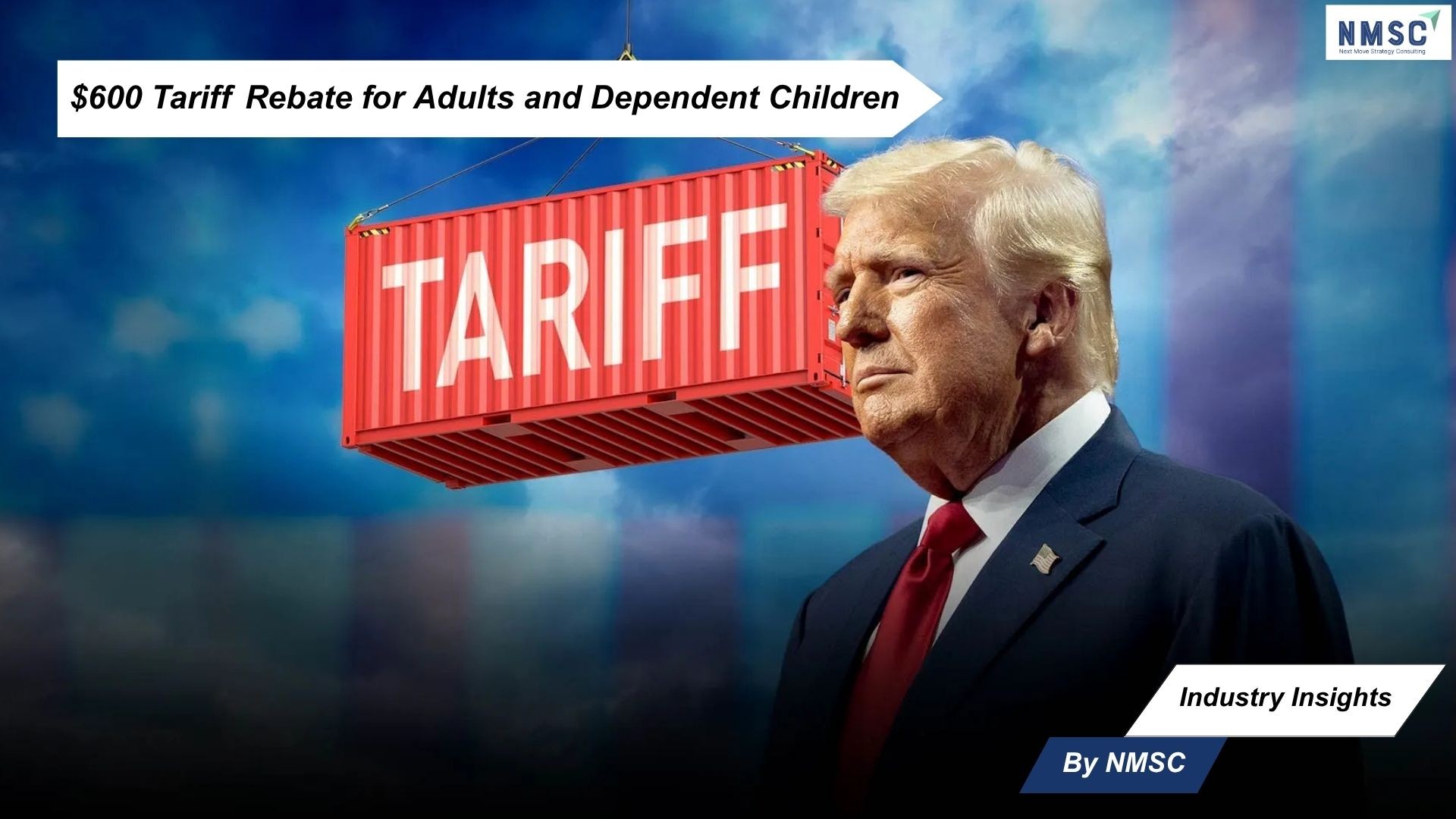$600 Tariff Rebate for Adults and Dependent Children
Published: 2025-08-16

Industry Insights from Next Move Strategy Consulting
Senator Josh Hawley introduced legislation in late July 2025, reported under names such as the American Worker Rebate Act of 2025 and the Reimbursement for American Workers Act, that would distribute rebate checks to working U.S. households funded by tariff receipts from the Trump administration’s trade measures. The proposal calls for at least $600 for each adult and each dependent child, with the payments phasing out for higher-income couples.
Hawley framed the idea as a way to return tariff receipts to American workers. The proposal has attracted attention because it would rely on tariff revenue rather than traditional budget allocations and could expand if tariff receipts exceed 2025 projections.
Why the proposal is controversial
Although supporters highlight direct household relief funded by tariff income, multiple obstacles and criticisms limit the bill’s prospects:
-
Several Senate Republicans have voiced opposition, describing the measure as unsustainable and urging that revenue instead be used to pay down the national debt.
-
The legislation would require approval from both the Senate and the House before reaching the president.
-
Economists have questioned the policy’s effectiveness and fiscal soundness; critics argue it may not deliver the relief consumers need and could revive inflationary pressures as recipients spend the funds.
Key points at a glance
-
Sponsor: Senator Josh Hawley.
-
Reported bill names: American Worker Rebate Act of 2025 / Reimbursement for American Workers Act.
-
Core benefit: Minimum $600 per adult and per dependent child (e.g., a family of four would receive $2,400 under the baseline proposal).
-
Income phase-out: Payments phase out for married couples with incomes above $150,000.
-
Economic concerns: Tax Foundation economist Alex Durante called the rebate unsound policy; Joseph Rosenberg of the Urban-Brookings Tax Policy Center warned rebate spending could increase demand and intensify inflationary pressures.
Outlook
Given resistance from within the GOP, expressed economic doubts, and the sizeable estimated cost, the tariff-rebate proposal faces steep political and policy hurdles. While the concept of returning tariff revenue to households has rhetorical appeal, the combination of fiscal questions, intra-party opposition, and inflationary concerns makes near-term enactment uncertain.
Source: https://economictimes.indiatimes.com
Prepared by: Next Move Strategy Consulting
















Add Comment